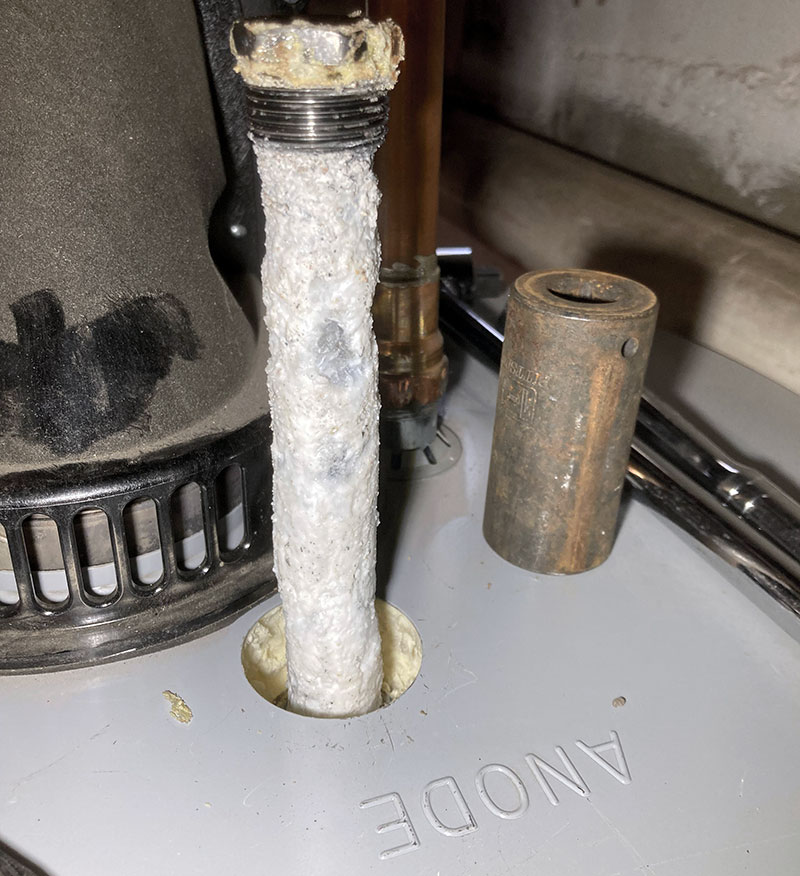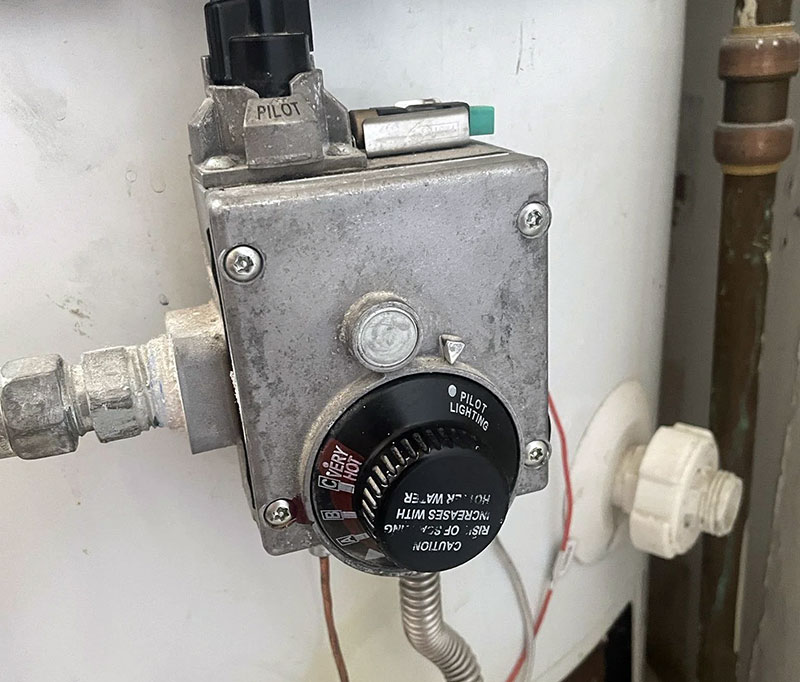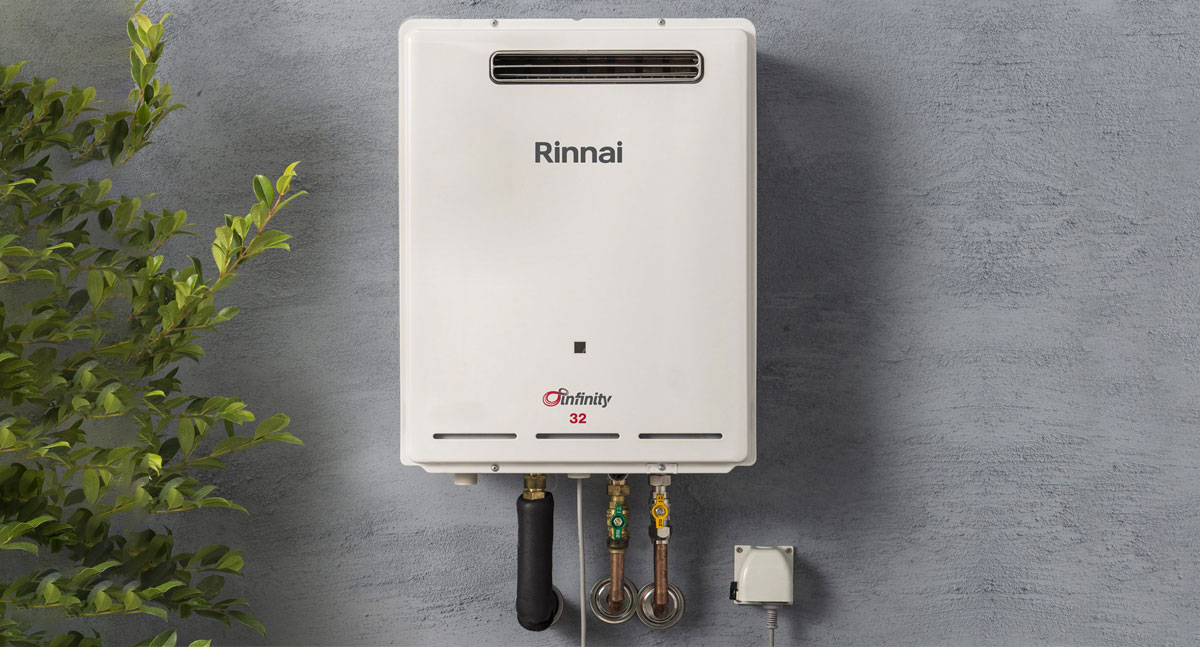Hot water is essential for various activities such as bathing, cooking, washing, and cleaning. In Australia, around 50% of homes use electric water heaters. Thus, knowing how to tell when your hot water heater needs replacement is vital.
This guide will walk you through some tips to help you determine if your hot water heater is at the end of its rope. By following these pointers, you can make informed decisions about your failing system. Let’s dive in!
Signs Your Water Heater Needs Replacement
Like any other major appliance like the dishwasher and the washing machine, water heating systems heaters have limited lifespans. They can experience wear and tear over the years. Understanding how to tell when your hot water heater needs replacement is crucial to avoid unexpected breakdowns, water damage, and other inconveniences. Here are a few signs to watch out for:
Age
Age is one of the first indicators that your water heater may need replacement. Most conventional tank-type water heaters have a lifespan of about 10 to 15 years. If yours is nearing or already beyond this age range, it’s time to seriously consider a new system.
Additionally, even if regular maintenance can extend its life, older units can become more susceptible to problems and efficiency issues. This makes replacement the more cost-effective and reliable option.
Inconsistent Water Temperature
Have you noticed that your showers have become a game of “too hot” or “too cold” lately? Fluctuating water temperatures or difficulties maintaining a consistent hot water supply are common signs of a failing water heater.
This issue can arise due to sediment build-up, a malfunctioning thermostat, or other internal problems. If your water heater can no longer keep the water at the desired temperature, it might be time to start shopping for a replacement.
Reduced Hot Water Supply
Is your hot water running out too quickly, leaving you with a cold surprise midway through your shower? A significant reduction in hot water available for daily use indicates that your heater is struggling.
As water heaters age, their storage capacity may decrease, resulting in a diminished hot water supply. If you run out of hot water more often, it’s a warning sign that the water heater’s efficiency is declining, and replacement should be considered.
Longer Heating Times
Another sign of a water heater nearing the end of its life is an increase in the time it takes to heat the water. If your water heater takes longer than usual to reach the desired temperature, it could result from sediment build-up or an aging heating element.
Extended heating times waste energy (especially during winter) and signify that the water heater is malfunctioning. In this scenario, replacement is the most sensible choice.
Strange Noises
Your water heater should operate without sound. If you hear unusual noises like rumbling, popping, or banging from the appliance, it’s likely a sign of sediment build-up in the tank.
Over time, more and more sediment can accumulate at the bottom of the tank, causing hot spots that lead to these unsettling noises. Besides being annoying, this ruckus indicates that your heater is not as efficient as it used to be.
Discoloured or Rusty Water
When you turn on your hot water tap and notice discoloured or rusty water flowing out, it’s a red flag that your water heater may be in trouble. The presence of rust or sediment in the water indicates internal corrosion inside the water heater tank.
Corrosion compromises the tank’s integrity and can eventually lead to leaks and water damage. If you observe rusty water coming from your faucets, it’s essential to address the issue promptly, as it signals the need for a new unit.
Leaks and Water Damage
Visible leaks around the water heater or signs of water damage nearby are severe warnings that your water heater is experiencing significant issues. Leaks can occur due to corrosion, faulty taps, or cracks in the tank, sink, piping, and plumbing fitting.
Leaking water heaters risk flooding and extensive water damage to your home. If you detect any leaks or water accumulation near your water heater, it’s crucial to address the problem immediately and consider a replacement unit before the situation worsens.
Corroded Anode Rods
The anode rod is a crucial component of water heaters, as it helps prevent tank corrosion by attracting corrosive elements. Over time, the anode rod can become depleted or eroded, leading to further tank corrosion.
To determine if you need a new water heater, inspect the condition of your current one’s anode rod. If it’s severely depleted or heavily corroded, replacing the unit is a sensible decision to avoid further damage.

Sediment Build-up
Sediment naturally accumulates at the bottom of the water heater tank and bathroom over time. However, excessive sediment build-up can break the water heater’s efficiency and performance.
The sediment acts as an insulator, making it harder for the heating element to transfer heat to the water. This results in increased energy consumption and reduced hot water output. Consider getting a new heater if you notice signs of significant sediment build-up during routine maintenance.
Corrosion and Rust
External signs of corrosion and rust on the water heater’s surface or metal fittings can indicate potential internal damage. This weakens the tank’s structure and increases the risk of leaks.
Regularly check your water heater for signs of rust or corrosion, especially around the bottom of the tank and the fittings. If you notice extensive decay, it’s time to consider replacing the unit to avoid water damage and potential safety hazards.
Pilot Light and Ignition Issues
For gas-powered water heaters, problems with the pilot light or ignition system are significant indicators of potential issues. Frequent pilot light outages or difficulties in igniting the burner can be caused by a faulty thermocouple or gas supply problems.
Ignoring these issues can lead to inconsistent heating and even gas leaks (which pose safety risks). If you experience persistent pilot light or ignition problems, it’s essential to consult a professional technician and consider a replacement if necessary.

Energy Efficiency and Utility Bills
Monitoring changes in your water heater’s energy efficiency is essential to determining its overall health. A sudden increase in energy consumption or a significant rise in utility bills could indicate decreased water heater efficiency.
Older water heaters tend to become less energy-efficient more quickly, leading to higher operational costs. In such cases, upgrading to a new, energy-efficient model can help save money on your utility bills while ensuring a reliable hot water supply.
Safety Concerns When Replacing Old Water Heaters
Dealing with an old or malfunctioning water heating system has potential safety risks you should consider. This section will highlight some essential safety concerns when replacing your old water heater.
Gas Leaks and Ventilation
The risk of gas leaks during replacement is a primary safety concern for gas-powered water heaters. Before starting any work, turn off the gas supply to the water heater and ensure the gas piping is safely disconnected.
Also, avoid damaging the gas line while removing the old water heater. After installing the new unit, thoroughly inspect all gas connections and fittings for leaks. Ensure there’s proper ventilation to prevent carbon monoxide poisoning.
Electrical Hazards
Electrical hazards are a significant concern when dealing with electric water heaters. Turn off the power supply to the water heater at the circuit breaker before beginning any work.
Ensure all electrical connections are secure and comply with local electrical codes to prevent the risk of short circuits or fires. If you need clarification on electrical connections or more experience in electrical work, seek assistance from a qualified electrician.
Proper Support and Lifting
Water heaters can be heavy, especially if it’s full of water. So when removing the old unit and installing the new one, use proper lifting techniques to avoid strains and injuries.
Get help from a friend or family member to lift and carry the water heater. And make sure the appliance is adequately supported and positioned securely to prevent tipping or structural damage.
Scalding and Hot Water Burns
During the replacement process, be cautious of hot water remaining in the old heater. It might flow out while you’re disconnecting the water plumbing.
Hot water burns can cause severe injuries, particularly to children and the elderly. Wear protective gloves and clothing to minimise the risk of burns and handle hot water safely.
Proper Disposal
Properly disposing of the old water heater is essential. Check with your local waste management or recycling centre to learn about the appropriate disposal methods for water-heating appliances. Improper disposal may lead to environmental contamination and could even be illegal.
Flushing and Pressure Release
Before removing the old water heater, flush it to drain any clogged water, chemical substance, and sediment. This reduces the risk of spills and makes handling the water heater safer. Release any pressure from the tank before disconnecting water pipe to prevent sudden bursts of hot water or steam.
Professional Assistance
If you lack confidence in replacing the water heater safely or encounter any challenges during the process, seek the assistance of hot water repair experts. Since most of them are just an email or telephone call away, they can ensure the replacement is carried out safely and complies with local building codes.
What is the Average Lifespan of Water Heaters?
The average product lifetime of a water heater can vary depending on the type of water heater, the quality of the water passing through the pipe, and how well you take care of the unit. Generally, a well-maintained water heater can last between 10 to 15 years.
Factors That Can Shorten a Water Heater’s Lifespan
While water heaters are designed to last for many years, certain factors can shorten their lifespan. These include:
Poor Maintenance
Regular maintenance is crucial for the longevity of your water heater. This includes purging the tank of sediment, inspecting the pressure valve or drain cleaner, and checking the anode rod. Neglecting these tasks can lead to problems like rust, leaks, and inefficient operation, which can shorten the unit’s lifespan.
Frequent Power Outages
Frequent power outages can take their toll on your water heater, especially if it’s an electric model. When the power goes out, the water in the tank can cool down. When the power comes back on, the water heater has to work hard to heat the water back up to the set temperature. This can strain the water heater and lead to a shorter lifespan.
According to recent data from Ausgrid on past power outages between January – March 2023, the local government area of Hornsby had the most power outages in the Sydney area, this was followed by Ku-ring-gai and then Warringah.
High Water Pressure
Excessively high water pressure can put undue stress on the water heater’s internal components, leading to wear and tear. Prolonged exposure to high pressure can weaken the tank, increase the likelihood of leaks, and shorten the overall lifespan of the water heater.
Hard Water
Hard water contains high levels of minerals like calcium and magnesium. When heated, these minerals can precipitate out of the water and form sediment that settles at the bottom of the tank. Over time, this sediment build-up can cause the water heater to work harder to heat the water, leading to increased wear and tear and a shorter lifespan.
Sediment Build-up
As mentioned earlier, minerals and sediments will gradually settle at the bottom of your heater. Over time, excessive sediment build-up can cause hot spots, leading to overheating and potentially damaging the tank. Sediment build-up can also reduce the heating efficiency of the water heater, increasing energy consumption and shortening its lifespan.
Inadequate Anode Rod Maintenance
Anode rods are sacrificial elements that protect the tank from corrosion. If the anode rod is not checked and replaced periodically, it can leave the tank vulnerable to rust and internal damage. A neglected anode rod significantly shortens the water heater’s lifespan by failing to provide corrosion protection.
Determining the Age of Your Water Heater
Knowing how old your water heater is can help you make better-informed decisions about maintenance or potential replacement. Here are five tips to help you find out how your unit’s age:
- Check the Manufacturer’s Label. Check the manufacturer’s label on the side of the tank for the manufacturing date or installation date.
- Check the Serial Number Decoding. Some manufacturers use the serial number to indicate the manufacturing date. Look for decoding instructions online or contact the manufacturer.
- Read the Owner’s Manual. Check the owner’s manual for details on locating the manufacturing date using the model and serial number.
- Visit Online Resources. Use online tools or websites to input the serial number and find the age of your water heater.
- Get Professional Inspection. If you need more clarification, get the service of a plumber or technician who can determine the age by examining the water heater’s features and components.
How Much Does It Cost to Replace a Water Heater?
On average, the total cost for a new water heater and installation can range from a few hundred to a few thousand dollars. Depending on various factors, replacing a water heater can be cheap or expensive.
Factors to Consider When Choosing a New Water Heater
Getting a new water heater for your home is a significant decision that requires careful consideration. With various types, sizes, and features available, evaluating several factors is essential to ensure you choose the best unit to meet your household’s hot water needs. These include:
Type
There are several types of water heaters available for homes, including:
- Conventional Tank Water Heaters. These traditional water heaters store and heat water in a large tank. They are cost-effective and readily available, providing a constant hot water supply.
- Heat Pump Water Heaters. Heat pump water heaters use heat from the air or ground to heat water, making them highly energy-efficient. They work best in mild to warm climates.
- Solar Water Heaters. Solar water heaters utilise the sun’s energy to heat water, reducing reliance on conventional energy sources and lowering utility bills. According to a Griffith University study by Abel Silva Vieira, they’re also less prone to Legionella outbreaks! Interestingly, the study also found that water-efficient front-load washing machines are likely to increase the energy intensity of hot water supply services.
- Condensing Water Heaters. These tankless water heaters capture and use exhaust gases to preheat incoming cold water, maximising energy efficiency.
- Electric Resistance Water Heaters. Electric resistance water heaters use electric heating elements to heat water inside the tank, making them easy to install and suitable for areas with no gas supply.
Size and Capacity
The size and capacity of the water heater are also essential factors to ensure you have an adequate supply of hot water for your household. Consider the number of people in your home and their hot water usage habits. A larger family will likely require a water heater with a higher gallon capacity to meet the demand.
Recovery Rate
The recovery rate is the time it takes for a heater to heat a certain amount of water. The higher the recovery rate, the more quickly the unit can provide hot water. Suppose your household often uses hot water at once. In that case, consider getting a heater with a high recovery rate.
Energy Efficiency
Energy efficiency is crucial for reducing long-term energy costs and environmental impact. A study by Percy Hohne and Kanzumba Kusakana has noted that it accounted for up to 60% of the total energy in the residential sector in South Africa. Look for water heaters with high Energy Factor (EF) ratings for conventional tank heaters. Or check the high energy efficiency ratings for tankless and heat pump models (Energy Star certifications are reliable indicators for this).
Fuel Type
The fuel type available in your area can influence your water heater options. Common fuel types include electricity, natural gas, propane, and solar. Choose a fuel type that is readily available and cost-effective in your region.
Installation Location and Space
Consider the available space and installation requirements for the water heater. Tankless and heat pump water heaters typically require less space and allow more flexibility during installation. Conventional tank water heaters require sufficient space for the tank and venting.
Upfront Cost and Long-Term Savings
Evaluate the upfront cost of the water heater and compare it with potential long-term savings on energy bills. While more energy-efficient models may have a higher initial cost, they can result in significant savings over time.
Brand and Warranty
Choose reputable brands with a proven track record for quality and reliability such as Dux, Solahart, Rinnai, Rheem, AquaMAX and Bosch. Look for water heaters with extended warranties to provide peace of mind and protect against potential defects or malfunctions.
Additional Features
Some water heaters come with extra features that can enhance convenience and safety. These include:
- Thermostat. This allows you to set the desired water temperature, ensuring you always have hot water at your preferred temperature.
- Timer. A timer allows you to schedule when the water heater will turn on and off, which can help save energy if you have predictable hot water use patterns.
- Leak Detector. This feature will alert you if there’s a leak, allowing you to address the issue before it causes significant damage.
Maintenance and Repairs
Consider the maintenance requirements and availability of replacement parts for the water heater. Regular maintenance is essential for prolonging the lifespan and efficiency of the unit.
Local Regulations and Incentives
Be aware of any local regulations, building codes, and permits required for water heater installation. Additionally, check for any available incentives, rebates, or tax credits for installing energy-efficient water heaters.
Summary
By following this comprehensive guide, you’ll be able to recognise the signs of a declining water heating system immediately and know how to pick the best replacement. So if you find your water heater showing wear and tear, best follow our advice and tips above.
